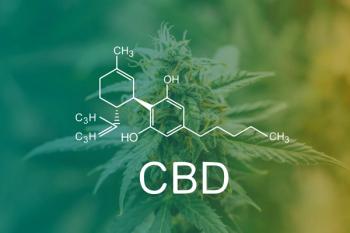
MDMA-Assisted Therapy Demonstrates Significant Reductions in Post-Traumatic Stress Disorder Symptoms in Phase 3 Study
Our sister publication, Pharmacy Times, covered recent study results that could lead to an FDA approval for MDMA to treat post-traumatic stress disorder by the end of 2023.
Methylenedioxymethamphetamine-assisted therapy (MDMA-AT) was found to reduce post-traumatic stress disorder (PTSD) symptoms and functional impairment within a diverse population of individuals who had moderate to severe PTSD, according to the results of a study published in Nature Medicine (1). The study, sponsored by the Multidisciplinary Association for Psychedelic Studies (MAPS) and administered by the MAPS Public Benefit Corporation (MAPS PBC), will provide the basis for a New Drug Application MAPS will submit to the FDA later this year (2).
“Thanks to the combined efforts of dozens of therapists, hundreds of participants who volunteered in MAPS-sponsored trials, and many thousands of generous donors, MDMA-assisted therapy for PTSD is on track to be considered for approval by the FDA in 2024,” said Rick Doblin, MAPS founder and president, in a press release (2). “We hope that MDMA-assisted therapy for PTSD will be approved by the FDA next year—and that our Open Science, Open Books principle will inspire researchers to make this just the first of many psychedelic-assisted therapies to be validated through diligent research.”
The randomized, double-blind, phase 3 study (
Approximately 26.9% of individuals with moderate PTSD and 73.1% had severe PTSD. Further, 26.9% of individuals identified as Hispanic or Latinx and 33.7% identified as other than White (1).
Investigators found that the least squares mean change in CAPS-5 score was –23.7 for MDMA-AT compared to –14.8 for the placebo and therapy. Additionally, the least square mean change in SDS score was –3.3 and –2.1, respectively (1).
The study authors reported that 86.5% of the individuals treated with MDMA-AT were responders who had clinically meaningful improvements at 18 weeks after baseline compared with 69% in the placebo and therapy group. Furthermore, by the end of the study, 71.2% of individuals no longer met the DSM-5 criteria for PTSD compared with 47.6% of those in the placebo group (1).
Approximately 46.2% in the MDMA-AT group and 21.4% in the placebo group met remission criteria (1). Additionally, investigators reported that 7 individuals had severe treatment-emergent adverse events (TEAEs), with 5 in the MDMA-AT group and 2 in the placebo and therapy group. There were no reports of serious TEAEs and no deaths (1).
Commonly reported TEAEs included muscle tightness, nausea, decreased appetite, and hyperhidrosis. Eight individuals experienced cardiac TEAEs, including palpitations and tachycardia, whereas 9 experienced vascular TEAEs. There was a high rate of psychiatric TEAEs in both groups, including suicidal ideation, insomnia, and anxiety. These reactions were mostly mild to moderate (1). The study authors found that MDMA-AT was generally well-tolerated (1).
In an interview with Pharmacy Times, Ismail Lourido Ali, the director and counsel of policy and advocacy at MAPS, discussed the potential of getting an approval for MDMA by the end of 2023.3 Lourido said that MAPS had been focused on a PTSD indication for MDMA, but there were additional trials and research that supported other indications as well, including social anxiety for adults with autism, eating disorders, and couples’ therapy.
Additionally, in June 2023, the FDA approved a clinical trial investigating MDMA to treat impaired social motivation, which is a symptom of schizophrenia that causes significant functional impairment (4).
“COVID-19 delayed a lot of clinical trials in the past year or 2, especially things that weren't related to treating COVID-19, but it seems like by about the end of 2023, MDMA is very likely to become FDA-approved for PTSD,” Kelan Thomas, PharmD, MS, associate professor of clinical sciences at Touro University California College of Pharmacy, said in a prior interview with Pharmacy Times (5). “I would encourage pharmacists to start reading the literature, start looking at these articles, and evaluating this because these things are coming soon, and they are quite different than the way that we've thought about other new therapeutics on the market. I think it's important for pharmacists to start thinking about what their role could be to facilitate this transition into a new paradigm of psychiatric treatment.”
Read the original article
References
- Mitchell, JM, Ot’alora GM, van der Kolk B, Shannon S, et al. MDMA-assisted therapy for moderate to severe PTSD: a randomized, placebo-controlled phase 3 trial. Nat Med. 2023;10.1038/s41591-023-02565-4. doi:https://doi.org/10.1038/s41591-023-02565-4
- MAPS PBC Publishes Results of Successful Confirmatory Phase 3 Trial of MDMA-Assisted Therapy for PTSD. Multidisciplinary Association for Psychedelic Studies. News release. September 14, 2023. Accessed September 15, 2023.
https://maps.org/2023/09/13/maps-pbc-publishes-results-of-successful-confirmatory-phase-3-trial-of-mdma-assisted-therapy-for-ptsd/ - Expert: MDMA for the treatment of PTSD may be FDA-approved by the end of 2023. Pharmacy Times. October 19, 2021. Accessed September 15, 2023.
https://www.pharmacytimes.com/view/expert-mdma-for-the-treatment-of-ptsd-may-be-fda-approved-by-the-end-of-2023 - Hippensteele A. FDA approves MDMA for clinical trial use investigating schizophrenia. Pharmacy Times. June 9, 2023. Accessed September 15, 2023.
https://www.pharmacytimes.com/view/fda-approves-mdma-for-clinical-trial-use-investigating-schizophrenia - Expert: MDMA is very likely to be FDA-approved for PTSD by the end of 2023. Pharmacy Times. November 8, 2021. Accessed September 15, 2023.
https://www.pharmacytimes.com/view/expert-mdma-is-very-likely-to-be-fda-approved-for-ptsd-by-the-end-of-2023
Newsletter
Unlock the latest breakthroughs in cannabis science—subscribe now to get expert insights, research, and industry updates delivered to your inbox.




